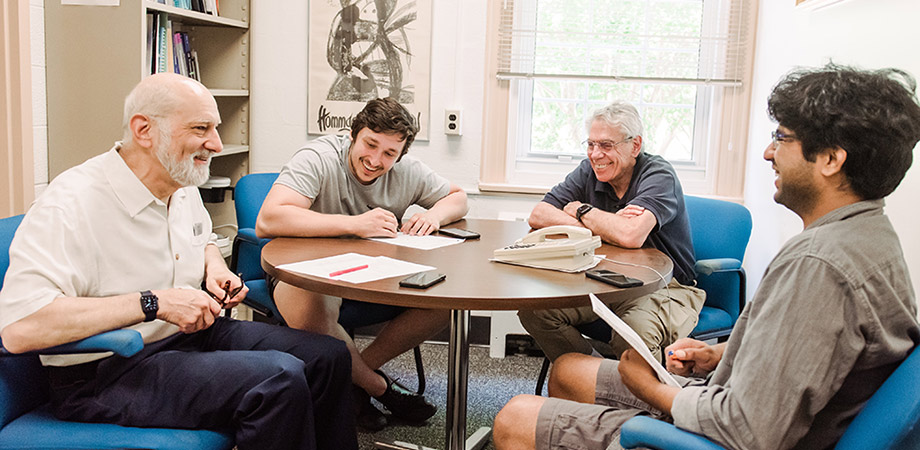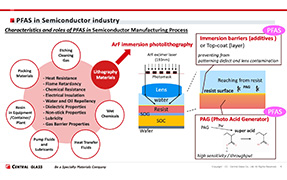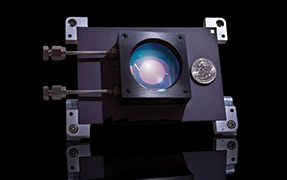Curtis R. Menyuk: The 2024 SPIE G.G. Stokes Award in Optical Polarization

Curtis Menyuk has made significant and sustained contributions in the areas of optical polarization in nonlinear photonics and optical-fiber communications across a career spanning more than three decades. He developed the foundational theoretical model of polarization-dependent nonlinear propagation in birefringent optical fibers, and performed groundbreaking work in the study of optical soliton propagation and stability. When he began his work, there were no theoretical models available to describe polarization effects in nonlinear fiber propagation, so Menyuk had to develop the concept of coupled nonlinear Schrödinger equations from first principles. His model was the first description of the propagation of orthogonal polarization components in a fiber waveguide, and derived the important cross-coupling terms that showed how nonlinear polarization effects could manifest themselves physically. This seminal work has been the basis of subsequent studies of polarization effects in optical fiber and has had major impact on the scientific field of fiber optics and on fiber-related technology. Since then, Menyuk has worked with both academic and industry partners to continue to explore the importance of polarization effects in other fiber-based contexts, remaining one of the key figures driving global research in the area of polarization effects in optical fibers.
Menyuk, a professor of computer science and electrical engineering at the University of Maryland Baltimore County (UMBC), was a founding member of UMBC’s Electrical Engineering Department. He has been attending and sending his students to SPIE conferences for more than 30 years, raising awareness within the SPIE community of the important field of nonlinear-guided wave optics, as well as helping to support the research quality of SPIE technical events. In addition, his volunteer conference involvement includes roles as conference chair as well as a member of the program committee for multiple SPIE Security + Defence conferences. He is the 2015 recipient of the Humboldt Research Award and, in 2013, he received the IEEE Photonics Society Streifer Award.
“I have known Curtis professionally for over 20 years since we shared research interests in polarization effects in optical fibers in the early 2000s,” says DEVCOM Army Research Laboratory’s physicist Michael Brodsky. “Curtis is a renowned pioneer in the field of optical communications, and over the years I witnessed the tremendous impact of his group’s work on the telecom industry, photonic technologies, and the field of optics in general. We as a society owe the convenience of fast internet and widespread broadband access to dedicated scientists and engineers of the late ’80s and ’90s, and, in that community, Curtis stands as a giant among his peers. It is truly impossible to describe every implication and impact of the enormous body of knowledge created by him, but here’s one example: Curtis pioneered, pushed, and lead the development of the fundamental theoretical understanding of light propagation in optical fibers. And, in that context, his results and proposed approaches enabled numerical modelling of optical systems, a tool that is used by nearly every team of telecom engineers and optical communication-system designers worldwide.”
Meet the other 2024 SPIE Society Award recipients.
Read more about Curtis R. Menyuk and the SPIE G.G. Stokes Award in Optical Polarization.



